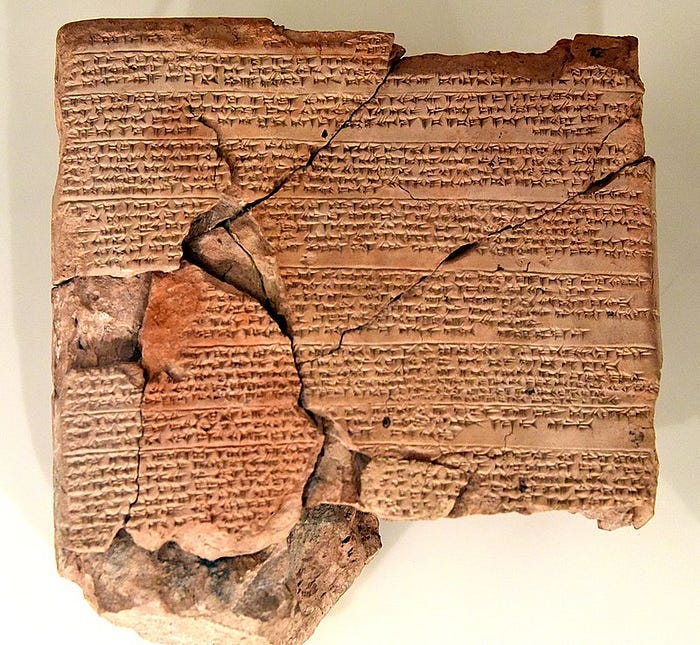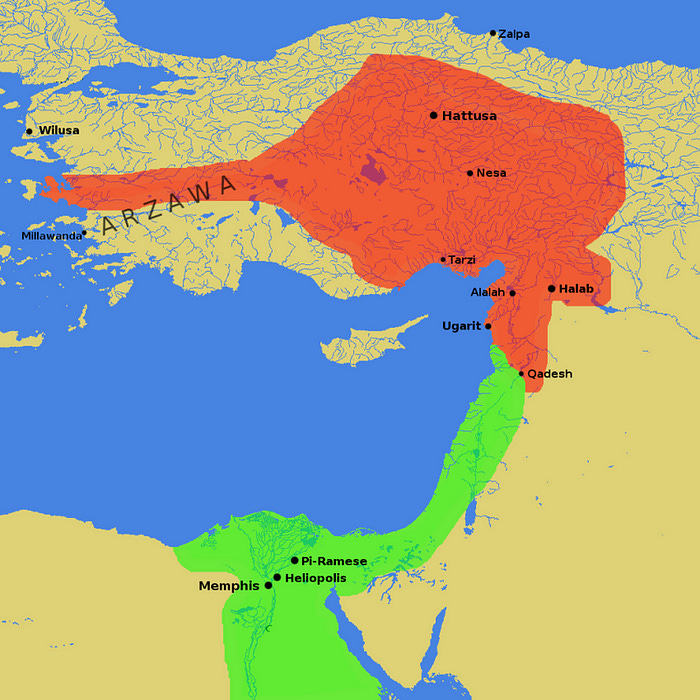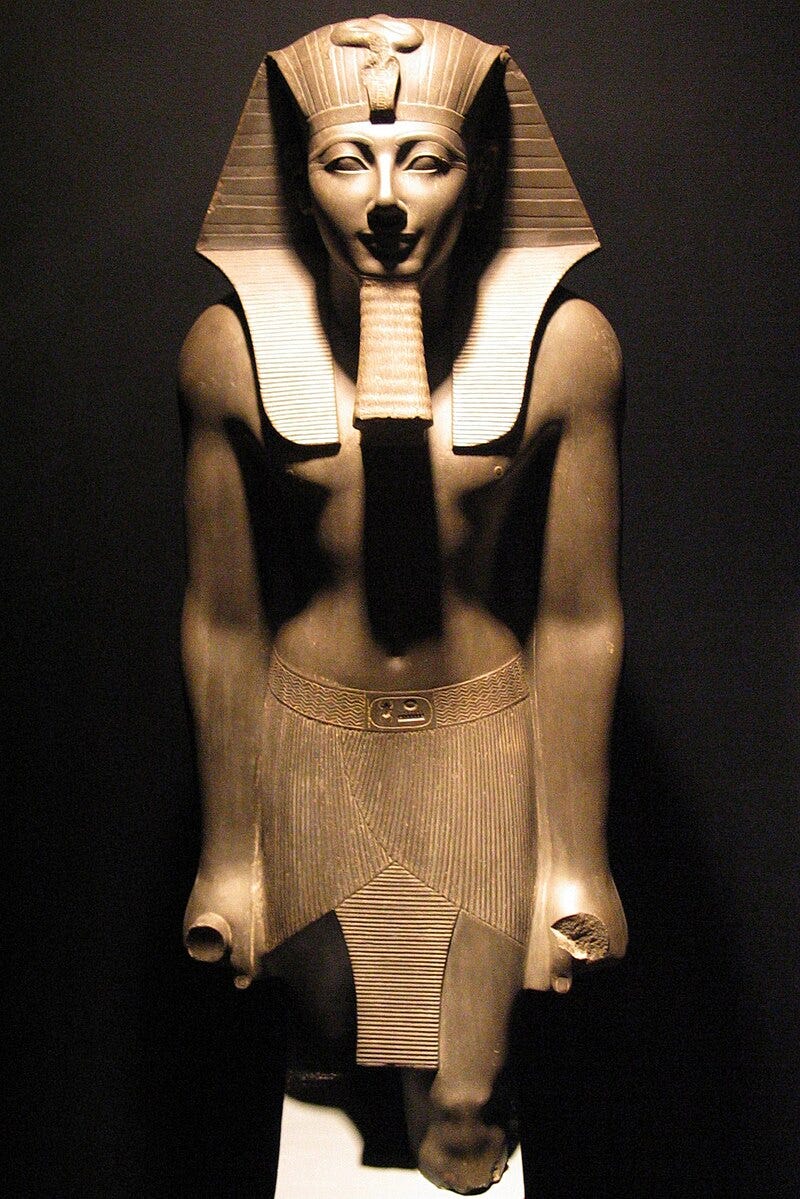The World's Oldest Surviving Peace Treaty
The earliest recorded peace treaty, signed in 1259 BC, ended hostilities between two Bronze Age superpowers.

After the recent clashes in the Middle East between Iran and Israel, and the following ceasefire, the regional peace hangs by a thread. The slightest provocation can push things over the edge.
Whether Iran and Israel will shake hands and conclude a long-term peace treaty is something we don’t know. However, in 1259 BC, two superpowers, the Egyptians and the Hittites, set aside their differences and signed the world’s earliest recorded peace agreement, known as the Silver Treaty or the Eternal Treaty.
The earliest human peace treaty may have been as simple as a firm handshake between two rival clans. But we don’t know where or when it happened. Fortunately, we have more details about the events that led to the agreement between the Egyptians and the Hittites.
To learn why the Egyptians and Hittites were at the negotiating table, signing a peace deal, let’s roll back the clock to 1274 BC and learn about an epic clash between the two Bronze Age powers, which took place at Kadesh near the present-day Syria-Lebanon border.
Before we discuss the clash at Kadesh between the Hittites and the Egyptians, it’s essential to understand the factors that led to the confrontation.
Reminder: By choosing a paid membership (just $5 a month or $50 annually), you're helping amplify voices that history books too often overlook. Your support means these stories get the attention they deserve.
You’ll gain access to tons of members-only content👇
Full-length deep dives into untold stories, like this one: no paywalls, no cuts.
The entire archive of extraordinary tales from the Ice Age to the Fall of the Mongol Empire, the hottest archaeological finds, and the appetizing history of food.
Early access to special editions, be the first to dive in.
Join lively discussions in members-only posts and subscriber chats. Paid members can initiate conversations in the subscriber chat.
Egypt Transforms into a Military Superpower

Following Egypt’s unification under Pharaoh Narmer in the 32nd century BC, Egyptian armies raided Canaan (a kingdom in the Levant, stretching from modern Israel, Lebanon, to Syria).
Canaan was a loose confederation of city-states that prospered because of its strategic location along trade routes. Egypt sought to assert control over these areas to safeguard its commercial interests. Canaan was a land bridge that linked Egypt to Mesopotamia and the Anatolian kingdoms. Egyptian merchants established a firm foothold in the Levantine kingdom.
However, the migration of people was not one-way. Canaanites also settled in Egypt. In the 17th century BC, a group called the Hyksos, believed to have originated from Canaan, ousted the Pharaohs and captured Lower Egypt.
Whether the Hyksos invaded Egypt or seized control from inside is hotly debated among historians. Egyptian chroniclers saw them as invaders, but current academics believe they settled in Egypt over several generations. What is clear is that the Egyptians did not view the Hyksos favorably.
Around 1540 B.C., Kamose, the ruler of Upper Egypt, rose against the Hyksos. A fight erupted between native Egyptians and armies loyal to the Hyksos. The successor of Kamose, Ahmose I, founder of Egypt’s Eighteenth Dynasty, conquered the Hyksos-held regions, marking the beginning of Egypt’s New Kingdom era.
During the reign of Thutmose I (1506 BC to 1493 BC), the Hyksos had a significant influence in the Levant. Thutmose vanquished the Hyksos, giving Egypt control of the area. During his reign, military reforms elevated Egypt to the status of a Mediterranean powerhouse.

Thutmose II continued the offensive in Canaan to protect Egypt’s borders. To prevent future invasions, Egypt extended its borders up to the Levant. By the time of Thutmose III's reign (1479–1425 BC, Egypt had reached its peak of power. The Pharaoh subdued the King of Kadesh and his allies at Megiddo, in what is considered the world’s first recorded battle —a clash so violent that it inspired the biblical Armageddon. The Battle of Meggido in 1457 BC was also history’s first documented conflict in which death tolls and the use of composite bows were recorded.
However, the Canaanite kingdoms weren’t always under Egypt’s grip.
After the reign of Pharaoh Akhenaten, Egypt’s power in the Levant declined. Akhenaten was more interested in promoting Atenism, which is arguably the world’s oldest monotheistic religion, than in securing Egypt’s borders.
Towards the end of the Eighteenth Dynasty, the military gains made by Thutmose III were almost reversed. Most of the Canaanite states had switched allegiance to the Hittites or declared their independence.
However, a father-and-son duo sought to change that.
Keep reading with a 7-day free trial
Subscribe to Forgotten Footprints to keep reading this post and get 7 days of free access to the full post archives.

